|
|
|
Книги издательства «Oxford University Press»
|
This new edition of Tom Hutchinson's bestselling course combines all the aspects that students and teachers loved from the previous edition with exiting new digital components, extra resources and more teacher support than ever before. Your students will love watching the new animated Mickey, Millie and Mut and Sweet Sue and Smart Alex cartoons. In later levels of the course the cartoons are replaced with dramatized episodes of Kids, the photo-story from the Student's Book. For your kinaesthetic learners there are new fun total physical response pronunciation activities in the pronunciation bank at the back of the Student's Book. Other students will enjoy reading the stories in the extensive reading bank. And you will love all the teacher support available with Project fourth edition. Use digital resources more effectively in your lessons with the digital workshops that give you step by step guides to using some of the most educationally beneficial sites on the internet as well as ideas for how you can use them with the projects in the Student's Book. |

|
The topic of stem cells has been very high profile in the media in recent years. There is much public interest in stem cells but also much confusion and misinformation, with some companies already offering 'stem cell products' and bogus 'stem cell therapies'. In this Very Short Introduction, Jonathan Slack introduces stem cells; what they are, what scientists do with them, what stem cell therapies are available today, and how they might be used in future. Despite important advances, clinical applications of stem cells are still in their infancy. Most real stem cell therapy today is some form of bone marrow transplantation. Slack introduces stem cells by explaining the difference between embryonic stem cells, which exist only in laboratory cultures, and tissue-specific stem cells, which exist in our bodies. Embryonic stem cells can become any cell type in the body, so diseases that may in future be treated by functional cells derived from these sorts of stem cell include diabetes, Parkinson's disease, heart disease, and spinal trauma. He then goes on to discuss the properties of tissue-specific stem cells and the important technique of bone marrow transplantation. Slack concludes by analysing how medical innovation has occurred in this area in the past, and draws out some of the lessons for the development of new therapies in the future. ABOUT THE SERIES: The Very Short Introductions series from Oxford University Press contains hundreds of titles in almost every subject area. These pocket-sized books are the perfect way to get ahead in a new subject quickly. Our expert authors combine facts, analysis, perspective, new ideas, and enthusiasm to make interesting and challenging topics highly readable. |
|
Most people remember chemistry from their schooldays as largely incomprehensible, a subject that was fact-rich but understanding-poor, smelly, and so far removed from the real world of events and pleasures that there seemed little point, except for the most introverted, in coming to terms with its grubby concepts, spells, recipes, and rules. Peter Atkins wants to change all that. In this Very Short Introduction to Chemistry, he encourages us to look at chemistry anew, through a chemist's eyes, in order to understand its central concepts and to see how it contributes not only towards our material comfort, but also to human culture. Atkins shows how chemistry provides the infrastructure of our world, through the chemical industry, the fuels of heating, power generation, and transport, as well as the fabrics of our clothing and furnishings. By considering the remarkable achievements that chemistry has made, and examining its place between both physics and biology, Atkins presents a fascinating, clear, and rigorous exploration of the world of chemistry — its structure, core concepts, and exciting contributions to new cutting-edge technologies. ABOUT THE SERIES: The Very Short Introductions series from Oxford University Press contains hundreds of titles in almost every subject area. These pocket-sized books are the perfect way to get ahead in a new subject quickly. Our expert authors combine facts, analysis, perspective, new ideas, and enthusiasm to make interesting and challenging topics highly readable. |
|
Microscopy is a dynamic area of science, incorporating both basic classroom microscopes and sophisticated research style instruments that can be driven by light, electrons, or X-rays. The rate of advance in the area over the last 50 years has led to a number of technological advances. In this Very Short Introduction Terence Allen, an established expert on microscope techniques, describes the scientific principles behind the main forms of microscopy, and the exciting new developments in the field. Focusing on the main underlying principles, and introducing the power of what is achievable today using microscopes, Allen demonstrates how microscopy impinges on almost every aspect of our daily lives; from medical diagnosis to quality control in manufacture. Beginning with a brief history of the early stages of microscopy development, Allen then concludes with a comprehensive account of the diverse spectrum of microscopy available today. ABOUT THE SERIES: The Very Short Introductions series from Oxford University Press contains hundreds of titles in almost every subject area. These pocket-sized books are the perfect way to get ahead in a new subject quickly. Our expert authors combine facts, analysis, perspective, new ideas, and enthusiasm to make interesting and challenging topics highly readable. |
|
In this compelling introduction to the fundamental particles that make up the universe, Frank Close takes us on a journey into the atom to examine known particles such as quarks, electrons, and the ghostly neutrino. Along the way he provides fascinating insights into how discoveries in particle physics have actually been made, and discusses how our picture of the world has been radically revised in the light of these developments. He concludes by looking ahead to new ideas about the mystery of antimatter, the number of dimensions that there might be in the universe, and to what the next 50 years of research might reveal. ABOUT THE SERIES: The Very Short Introductions series from Oxford University Press contains hundreds of titles in almost every subject area. These pocket-sized books are the perfect way to get ahead in a new subject quickly. Our expert authors combine facts, analysis, perspective, new ideas, and enthusiasm to make interesting and challenging topics highly readable. |
|
The animal world is immensely diverse, and our understanding of it has been greatly enhanced by analysis of DNA and the study of evolution and development ('evo-devo'). In this Very Short Introduction Peter Holland presents a modern tour of the animal kingdom. Beginning with the definition of animals (not obvious in biological terms), he takes the reader through the high-level groupings of animals (phyla) and new views on their evolutionary relationships based on molecular data, together with an overview of the biology of each group of animals. The phylogenetic view is central to zoology today and the volume will be of great value to all students of the life sciences, as well as providing a concise summary for the interested general reader. ABOUT THE SERIES: The Very Short Introductions series from Oxford University Press contains hundreds of titles in almost every subject area. These pocket-sized books are the perfect way to get ahead in a new subject quickly. Our expert authors combine facts, analysis, perspective, new ideas, and enthusiasm to make interesting and challenging topics highly readable. |
|
Law has played a central role in American history. From colonial times to the present, law has not just reflected the changing society in which legal decisions have been made-it has played a powerful role in shaping that society, though not always in positive ways. Eminent legal scholar G. Edward White-author of the ongoing, multi-volume Law in American History-offers a compact overview that sheds light on the impact of law on a number of key social issues. Rather than offer a straight chronological history, the book instead traces important threads woven throughout our nation's past, looking at how law shaped Native American affairs, slavery, business, and home life, as well as how it has dealt with criminal and civil offenses. White shows that law has not always been used to exemplary ends. For instance, a series of decisions by the Marshall court essentially marginalized Amerindians, indigenous people of the Americas, reducing tribes to wards of the government. Likewise, law initially legitimated slavery in the United States, and legal institutions, including the Supreme Court, failed to resolve the tensions stirred up by the westward expansion of slavery, eventually sparking the Civil War. White also looks at the expansion of laws regarding property rights, which were vitally important to the colonists, many of whom left Europe hoping to become land owners; the evolution of criminal punishment from a public display (the stocks, the gallows) to a private prison system; the rise of tort law after the Civil War; and the progress in legal education, moving from informal apprenticeships and lax standards to modern law schools and rigorous bar exams. In this illuminating look at the pivotal role of law in American life, White offers us an excellent first step to a better appreciation of the function of law in our society. About the Series: Oxford's Very Short Introductions series offers concise and original introductions to a wide range of subjects--from Islam to Sociology, Politics to Classics, Literary Theory to History, and Archaeology to the Bible. Not simply a textbook of definitions, each volume in this series provides trenchant and provocative--yet always balanced and complete--discussions of the central issues in a given discipline or field. Every Very Short Introduction gives a readable evolution of the subject in question, demonstrating how the subject has developed and how it has influenced society. Eventually, the series will encompass every major academic discipline, offering all students an accessible and abundant reference library. Whatever the area of study that one deems important or appealing, whatever the topic that fascinates the general reader, the Very Short Introductions series has a handy and affordable guide that will likely prove indispensable. |
|
For four centuries Britain was an integral part of the Roman Empire, a political system stretching from Turkey to Portugal and from the Red Sea to the Tyne and beyond. Its involvement with Rome started long before the Conquest launched by the Emperor Claudius in 43 AD, and it continued to be a part of the Roman world for some time after the final break with Roman rule. Bringing together archaeological investigation and historical scholarship, Peter Salway explores some of the key issues arising from this period in Britain's history, discussing the question of identity at this time and analysing the importance of widespread literacy in Roman Britain. Covering the period from Julius Caesar's first forays into Britain and Claudius' subsequent conquest, as well as Britain under the later Roman Empire, Salway outlines the key events of this time period, providing a focus on society in Roman Britain, and offering a thoughtful consideration of the aftermath of Roman rule. In the new edition of this Very Short Introduction, Peter Salway makes a number of essential updates in light of recent research in the area. He looks at issues of ethnicity, 'Britishness', and post-colonialism, provides alternative theories to the end of the Roman period in Britain, and draws parallels between the history of Roman Britain and a wide range of other periods, territories, and themes, including the modern experience of empires and national stereotypes. ABOUT THE SERIES: The Very Short Introductions series from Oxford University Press contains hundreds of titles in almost every subject area. These pocket-sized books are the perfect way to get ahead in a new subject quickly. Our expert authors combine facts, analysis, perspective, new ideas, and enthusiasm to make interesting and challenging topics highly readable. |
|
This Very Short Introduction offers a powerfully-written explanation of the war's complex origins and course, and explores its impact on a personal and international scale. It also provides an ethical reflection on the war in the context of Europe's tumultuous twentieth century, highlighting why it has inspired some of the greatest writers of our time, and how it continues to resonate today in Britain, continental Europe, and beyond. Throughout the book, the focus is on the war as an arena of social change where ideas about culture were forged or resisted, and in which both Spaniards and non-Spaniards participated alike. These were conflicts that during the Second World War would stretch from Franco's regime, which envisaged itself as part of the Nazi new order, to Europe and beyond. Accordingly, this book examines Spanish participation in European resistance movements during World War II and also the ongoing civil war waged politically, economically, judicially and culturally inside Spain by Francoism after its military victory in 1939. History writing itself became a battleground and the book charts the Franco regime's attempt to appropriate the past. It also indicates its ultimate failure — as evident in new writings on the war and, above all, in the return of Republican memory now occurring in Spain during the opening years of the twenty-first century. ABOUT THE SERIES: The Very Short Introductions series from Oxford University Press contains hundreds of titles in almost every subject area. These pocket-sized books are the perfect way to get ahead in a new subject quickly. Our expert authors combine facts, analysis, perspective, new ideas, and enthusiasm to make interesting and challenging topics highly readable. |
|
From around 900 to 400 BC, the Etruscans were the most innovative, powerful, wealthy, and creative people in Italy. Their archaeological record is both substantial and fascinating, including tomb paintings, sculpture, jewelry, and art. In this Very Short Introduction, Christopher Smith explores Etruscan history, culture, language, and customs. Examining the controversial debates about their origins, he explores how they once lived, placing them within the geographical, economic, and political context of the time. Smith concludes by demonstrating how the Etruscans have been studied and perceived throughout the ages, and the impact this has had on our understanding of their place in history. About the Series: Oxford's Very Short Introductions series offers concise and original introductions to a wide range of subjects--from Islam to Sociology, Politics to Classics, Literary Theory to History, and Archaeology to the Bible. Not simply a textbook of definitions, each volume in this series provides trenchant and provocative--yet always balanced and complete--discussions of the central issues in a given discipline or field. Every Very Short Introduction gives a readable evolution of the subject in question, demonstrating how the subject has developed and how it has influenced society. Eventually, the series will encompass every major academic discipline, offering all students an accessible and abundant reference library. Whatever the area of study that one deems important or appealing, whatever the topic that fascinates the general reader, the Very Short Introductions series has a handy and affordable guide that will likely prove indispensable. |
|
Poststructuralism changes the way we understand the relations between human beings, their culture, and the world. Following a brief account of the historical relationship between structuralism and poststructuralism, this Very Short Introduction traces the key arguments that have led poststructuralists to challenge traditional theories of language and culture. Whilst the author discusses such well-known figures as Barthes, Foucault, Derrida, and Lacan, she also draws pertinent examples from literature, art, film, and popular culture, unfolding the postructuralist account of what it means to be a human being. ABOUT THE SERIES: The Very Short Introductions series from Oxford University Press contains hundreds of titles in almost every subject area. These pocket-sized books are the perfect way to get ahead in a new subject quickly. Our expert authors combine facts, analysis, perspective, new ideas, and enthusiasm to make interesting and challenging topics highly readable. |

|
Some would argue that scarcely a day passes without a new assault on our privacy. In the wake of the whistle-blower Edward Snowden's revelations about the extent of surveillance conducted by the security services in the United States, Britain, and elsewhere, concerns about individual privacy have significantly increased. The Internet generates risks, unimagined even twenty years ago, to the security and integrity of information in all its forms. The manner in which information is collected, stored, exchanged, and used has changed forever; and with it, the character of the threats to individual privacy. The scale of accessible private data generated by the phenomenal growth of blogs, social media, and other contrivances of our information age pose disturbing threats to our privacy. And the hunger for gossip continues to fuel sensationalist media that frequently degrade the notion of a private domain to which we reasonably lay claim. In the new edition of this Very Short Introduction, Raymond Wacks looks at all aspects of privacy to include numerous recent changes, and considers how this fundamental value might be reconciled with competing interests such as security and freedom of expression. |
|
In this new offering from Stanley Wells, the pre-eminent Shakespearian scholar, comes a Very Short Introduction to the life and writings of the world's greatest and best-known dramatists: William Shakespeare. Looking at his early life and education, Wells explores Shakespeare's social and intellectual background and the literary traditions on which Shakespeare drew. Examining the theatres and theatrical profession of the time, he also considers how Shakespeare experienced this world, both as an actor and as a writer. Examining Shakespeare's narrative poems, sonnets, and all of his plays, Wells outlines their sources, style, and originality over the course of Shakespeare's career, to consider the fundamental impact his work has had for subsequent generations. Written with enthusiasm and flair by a scholar who has devoted a lifetime to the study of Shakespeare and his works, this is an engaging and authoritative introduction. ABOUT THE SERIES: The Very Short Introductions series from Oxford University Press contains hundreds of titles in almost every subject area. These pocket-sized books are the perfect way to get ahead in a new subject quickly. Our expert authors combine facts, analysis, perspective, new ideas, and enthusiasm to make interesting and challenging topics highly readable. |
|
In this Very Short Introduction, Peter Hainsworth and David Robey take a different approach to Dante, by examining the main themes and issues that run through all of his work, ranging from autobiography, to understanding God and the order of the universe. In doing so, they highlight what has made Dante a vital point of reference for modern writers and readers, both inside and outside Italy. They emphasize the distinctive and dynamic interplay in Dante's writing between argument, ideas, and analysis on the one hand, and poetic imagination on the other. Dante was highly concerned with the political and intellectual issues of his time, demonstrated most powerfully in his notorious work, The Divine Comedy. Tracing the tension between the medieval and modern aspects, Hainsworth and Robey provide a clear insight into the meaning of this masterpiece of world literature. They highlight key figures and episodes in the poem, bringing out the originality and power of Dante's writing to help readers understand the problems that Dante wanted his audience to confront but often left up to the reader to resolve. ABOUT THE SERIES: The Very Short Introductions series from Oxford University Press contains hundreds of titles in almost every subject area. These pocket-sized books are the perfect way to get ahead in a new subject quickly. Our expert authors combine facts, analysis, perspective, new ideas, and enthusiasm to make interesting and challenging topics highly readable. |
|
Landscape architecture plays an important role in shaping the places in which we live and work. But what is it? Landscape architects are involved, amongst other things, in the layout of business parks, the reclamation of derelict industrial sites, the restoration of historic city parks, and the siting and design of major pieces of infrastructure such as motorways, dams, power stations, and flood defences, as well as the planning of parks and gardens. Taking a historical perspective, Ian Thompson looks at both the roots of landscape architecture and the people that established it. This Very Short Introduction explores some of the misconceptions about landscape architecture and considers the discipline's origins in landscape gardening. Thompson takes a look at a number of areas, including the influence of Modernism, the difference between landscape design and landscape planning, and the way that planning legislation has driven the growth of the discipline. He also explores contemporary environmentalism, the debate as to whether landscape architecture is an art or a science, landscape architecture in the community, post-industrial projects, and its relationship with ecological urbanism. ABOUT THE SERIES: The Very Short Introductions series from Oxford University Press contains hundreds of titles in almost every subject area. These pocket-sized books are the perfect way to get ahead in a new subject quickly. Our expert authors combine facts, analysis, perspective, new ideas, and enthusiasm to make interesting and challenging topics highly readable. |
|
Photographs are an integral part of our daily lives from sensationalist images in tabloid papers and snapshots, to art photograpy displayed in galleries and sold through international art markets. In this thought-provoking exploration of the subject, Edwards combines a sense of the historical development of photography with an analysis of its purpose and meaning within a wider cultural context. He interrogates the way we look and think about photographs, and considers such issues as truth and recording, objectivity and fine art, identity and memory. ABOUT THE SERIES: The Very Short Introductions series from Oxford University Press contains hundreds of titles in almost every subject area. These pocket-sized books are the perfect way to get ahead in a new subject quickly. Our expert authors combine facts, analysis, perspective, new ideas, and enthusiasm to make interesting and challenging topics highly readable. |
|
Pilgrimage is found in most religious cultures, with large numbers of sites — from globally renowned places to regional shrines — flourishing historically and in the modern day. Pilgrimage centres around the world, including Mecca in Saudi Arabia, Guadalupe in Mexico, Lourdes in France, Santiago de Compostela in Spain, Haridwar in India, and Shikoku in Japan, attract millions of pilgrims annually, while a flourishing 'spiritual tourism' industry has grown to promote the practice. In the present day, new pilgrimage locations, including 'secular' ones with no official affiliation, such as Graceland, Elvis Presley's house, continue to emerge across the world. In this Very Short Introduction Ian Reader explores the factors that affect how pilgrimage has changed over time, from contemporary international developments, such as mass transportation to changing social attitudes reflected in the motives of pilgrims through the ages. He demonstrates the social and international aspects of pilgrimage, showing how it has become a way of expressing social identity and cultural heritage, as well as being entwined with themes of entertainment and tourism. Reader explores the key issues and themes of pilgrimage through history to the present, looking at its various forms, how people take part, what is learnt from the journeys, and why pilgrimage remains popular in an increasingly secular age. ABOUT THE SERIES: The Very Short Introductions series from Oxford University Press contains hundreds of titles in almost every subject area. These pocket-sized books are the perfect way to get ahead in a new subject quickly. Our expert authors combine facts, analysis, perspective, new ideas, and enthusiasm to make interesting and challenging topics highly readable. |
|
From Zeus and Europa, to Diana, Pan, and Prometheus, the myths of ancient Greece and Rome seem to exert a timeless power over us. But what do those myths represent, and why are they so enduringly fascinating? Why do they seem to be such a potent way of talking about our selves, our origins, and our desires? This imaginative and stimulating Very Short Introduction goes beyond a simple retelling of the stories to explore the rich history and diverse interpretations of classical myths. It is a wide-ranging account, examining how classical myths are used and understood in both high art and popular culture, taking the reader from the temples of Crete to skyscrapers in New York, and finding classical myths in a variety of unexpected places: from arabic poetry and Hollywood films, to psychoanalysis, the bible, and New Age spiritualism. ABOUT THE SERIES: The Very Short Introductions series from Oxford University Press contains hundreds of titles in almost every subject area. These pocket-sized books are the perfect way to get ahead in a new subject quickly. Our expert authors combine facts, analysis, perspective, new ideas, and enthusiasm to make interesting and challenging topics highly readable. |
|
Crime fiction has been one of the most popular genres since the 19th century, but has roots in works as varied as Sophocles, Herodotus, and Shakespeare. In this Very Short Introduction Richard Bradford explores the history of the genre, by considering the various definitions of 'crime fiction' and looking at how it has developed over time. Discussing the popularity of crime fiction worldwide and its various styles; the role that gender plays within the genre; spy fiction, and legal dramas and thrillers; he explores how the crime novel was shaped by the work of British and American authors in the 18th and 19th centuries. Highlighting the works of notorious authors such as Edgar Allan Poe, Conan Doyle, Agatha Christie, and Raymond Chandler — to name but a few — he considers the role of the crime novel in modern popular culture and asks whether we can, and whether we should, consider crime fiction serious 'literature'. ABOUT THE SERIES: The Very Short Introductions series from Oxford University Press contains hundreds of titles in almost every subject area. These pocket-sized books are the perfect way to get ahead in a new subject quickly. Our expert authors combine facts, analysis, perspective, new ideas, and enthusiasm to make interesting and challenging topics highly readable. |
|
In today's art world many strange, even shocking, things qualify as art. In this Very Short Introduction Cynthia Freeland explains why innovation and controversy are valued in the arts, weaving together philosophy and art theory with many fascinating examples. She discusses blood, beauty, culture, money, museums, sex, and politics, clarifying contemporary and historical accounts of the nature, function, and interpretation of the arts. Freeland also propels us into the future by surveying cutting-edge web sites, alongside the latest research on the brain's role in perceiving art. This clear, provocative book engages with the big debates surrounding our responses to art and is an invaluable introduction to anyone interested in thinking about art. ABOUT THE SERIES: The Very Short Introductions series from Oxford University Press contains hundreds of titles in almost every subject area. These pocket-sized books are the perfect way to get ahead in a new subject quickly. Our expert authors combine facts, analysis, perspective, new ideas, and enthusiasm to make interesting and challenging topics highly readable. |
|